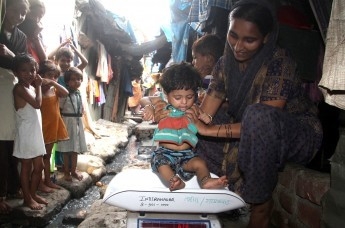
The 2014 winning entry from India exposed how Dengue fever and malaria are two of the most common causes of maternal death in Mumbai. (Credit: HT Media Ltd.)
Building on the success of last year’s Global Health Reporting Contest, the International Center for Journalists (ICFJ) invites journalists to submit news stories that demonstrate the power of media to improve the quality of life of the world’s most vulnerable people: mothers and children.
The contest is open to journalists from Brazil, China, India, Russia, and Sub-Saharan Africa.
Last year’s winners submitted multimedia and broadcast stories ranging from the use of art therapy to treat children with HIV in Russia to the high rate of C-sections in Brazil. Their reports reached a combined audience of more than 11.5 million and had a significant impact on their communities such as:
-
China’s National Health Institute vowed to increase the breastfeeding rate from 27 to 50 percent by 2020 in response to a story by China’s Yuan Duanduan about how few women breastfeed.
-
India’s Priyanka Vora’s story revealed an alarming rise in maternal deaths from dengue and tuberculosis. After the story ran, the Indian government started testing mothers and infants for infectious diseases – and treating them.
You can read more about the 2014 winners here.
The program, sponsored by Johnson & Johnson, will bring the selected journalists to the U.S. for a 10-day study tour. The journalists will travel from Washington, D.C., to Atlanta then to New York for meetings with doctors, specialists, NGOs and other medical experts. Winners will also receive $1,000 in cash and will join ICFJ’s network of global health reporters, including the four winners from the 2014 program.
Journalists employed by print, broadcast or online media in Africa, Brazil, China, India and Russia are eligible. The contest is also open to affiliated freelance journalists working in those countries/regions. Submitted work must have appeared in a media outlet based in one of the target countries/regions. For more details on how to send your submissions, please click here.
Caring for the world, one person at a time, inspires and unites the people of Johnson & Johnson. We embrace research and science - bringing innovative ideas, products and services to advance the health and well-being of people. Our approximately 128,700 employees at more than 275 Johnson & Johnson operating companies work with partners in health care to touch the lives of over a billion people every day, throughout the world.
The International Center for Journalists (ICFJ) is at the forefront of the news revolution. Our programs empower journalists and engage citizens with new technologies and best practices. ICFJ’s networks of reporters and media entrepreneurs are transforming the field. We believe that better journalism leads to better lives.